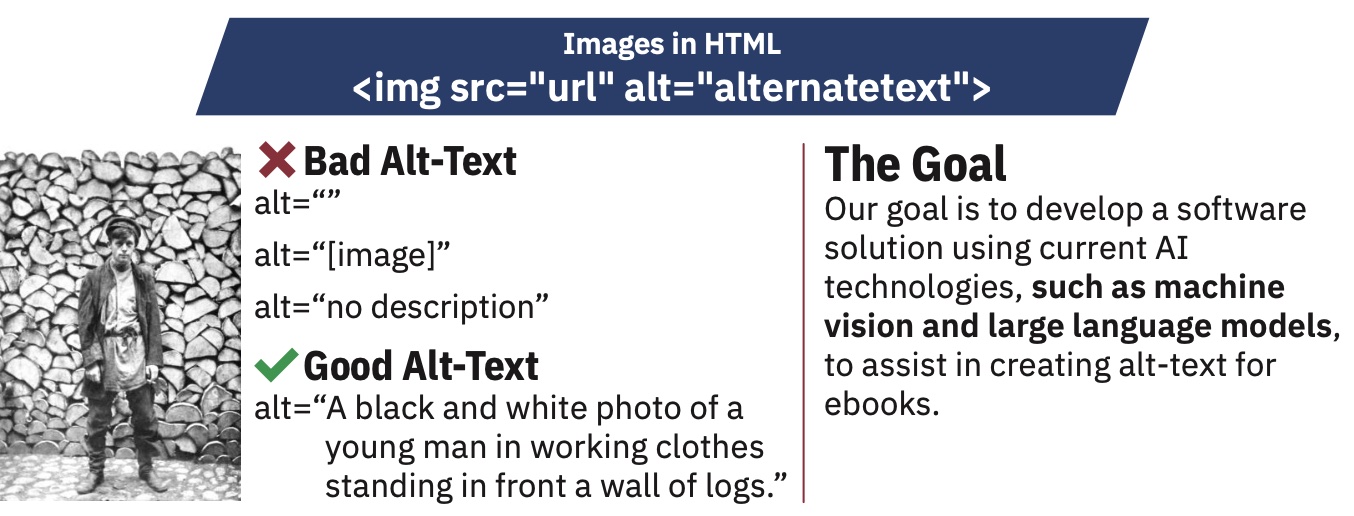The Free Ebook Foundation takes advantage of its small size and flexibility to undertake exploratory projects. Our recent work has centered on AI for accessibility, free ebook usage and automated updates.
AI for accessible alt-text
Working with a team of students at Stevens Institute of Technology, we've been exploring the use of machine vision combined with large language models to remediate ebooks containing images without descriptive alt-text. For example, Project Gutenberg has over 450,000 images in its corpus that lack alt-text descriptions. These are essential to make books accessible for making them usable by reading disabled and vision impaired people.
We imagine a system where volunteers proof-read descriptions generated by the automated systems, similar to the way Distributed Proofreaders uses OCR texts in the production of ebooks from public-domain works. But we didn't know how well the automated systems could work. The students' work showed us that some systems work surprisingly well, and others ... not so much.
- Here's the poster the students presented for their final presentation.

- The results for 300 images from Project Gutenberg are presented in these tables. The processing had 2 steps, first, AI's with image processing capabilities were asked to produce a description of the image. Then LLM's were presented the description along with some context from text surrounding the image and asked to write alt-text.
- Alt-text Results Overview.
- Evaluation scores of the AI alt-text (OpenAI "gpt-4-0125-preview") performed best
- Description Results Overview
- Evaluation scores of the AI Descriptions (Replicate Llava-13b performed best)
Usage of Free Ebooks
The Mellon Foundation funded a project led by the University of Michigan, in which the Free Ebook Foundation, University of Michigan Press, and Open Book Publishers worked on "Mapping the Free Ebook Supply Chain". The goal was to better understand how free ebooks are being discovered, acquired, and used. The final report of that project is available at https://deepblue.lib.umich.edu/handle/2027.42/137638.
Here is a possible directions for this work:
Automated Updates
As part of the GITenberg project, an "auto-update" server was built to take automatically add new and updated ebooks to the GITenberg website and to Unglue.it. A team from Stevens Institute of Technology is working with us to build a "River of Ebooks" system that will apply the autoupdate techniques to a variety of ebook autoring environments.
Offline Ebook Distribution
USB flash drives that can store 128GB are now available for only $20 - that's more than enough storage for all 60,000 books in Project Gutenberg. An offline version of Project Gutenberg had been developed by the Kiwix Project, already behind the "Offline Wikipedia" distribution effort. Together with a team of computer-science seniors from Steven Institute of Technology, and building on our development work with Project Gutenberg, the Free Ebook Foundation undertook to improve the usabality and currency of the Kiwix-developed Gutenberg content module. The students added bookshelf functionality to the modules, and helped to streamline the process of module creation.